Introducing the Mileage Fee Act
by Daniel Wortel-London
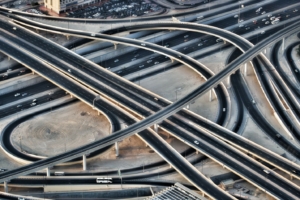
Long-distance travel damages the environment and harms wellbeing. (Michael Theis, CC BY 2.0 DEED 2.0)
Economies that operate within planetary boundaries are likely to be heavily localized compared to economies today. Planners will need to shift modes of transportation and redesign cities. Businesses will need to shorten supply chains. This is because freight and passenger travel impact the environment extensively. Respecting planetary boundaries requires that we create economies that do not rely heavily on long-distance travel.
To help accomplish this goal, CASSE introduces the Mileage Fee Act (MFA). This bill is designed to assess owners of road vehicles, trains, ships, and aircraft a fee based on distance traveled. By advancing a restructuring of the ties that link people, goods, work, and recreation, the MFA can help build a more sustainable and resilient economy for all.
Long Distance, Great Impact
Americans and their goods travel great distances. At the time of the Bureau of Transportation Statistic’s most recent long-distance travel survey in 2001, trips of 50 or more miles (or 100+ miles round trip) comprised about 30 percent of all passenger travel in the USA. This amounted to about 2.6 billion long-distance trips per year, or 7.2 million per day, overwhelmingly made by automobile. And since 2001 global estimates of long-distance travel have trended upward.
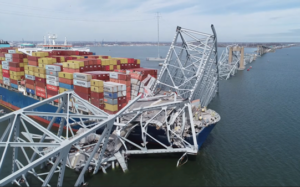
Economies that depend on long-distance trade are fragile and ecologically vulnerable. (Dunk, Flickr)
Freight travel shows similar growth: More than a quarter of all goods by weight, and nearly 45 percent by market value, traveled more than 250 miles in the USA.
Long-distance travel has a number of outsized impacts. A study of food transport in the EU found that 68 percent of freight carbon emissions came from long-distance transport. Only 26 percent were from shorter hauls. The infrastructure built to accommodate motorized vehicles, whether for long-distance travel or commuting purposes, destroys habitats and uses valuable natural resources. And sprawling cities built around motor vehicles have disproportionately high impacts on biodiversity, water pollution, and the climate.
These are just the environmental damages. Sprawling cities also widen equity gaps related to lack of accessibility. Meanwhile, sourcing products from long distances impairs the economic resilience of communities. And non-local products, particularly food, are less healthy and less likely to build community than those grown and consumed locally.
On the other hand, a locally based economy has many benefits, including increased economic strength and social connection. Strategies for creating such localization include encouraging use of alternative transportation such as bicycles and public transit, and orienting urban planning to increase density. But government leaders can also use fiscal policy to create more localization in our economy. That’s where the Mileage Fee Act comes in.
Closing the Distance
The USA already levies taxes on transportation. The Airport & Airway Trust Fund is financed in part through a tax on passenger tickets and jet fuels. We have excise taxes on new freight trucks, diesel fuel, and heavy vehicles. There’s a gas and diesel tax for automobile drivers (although it hasn’t been raised since 1993). Even railroads have a diesel fuel tax of 0.1 cent per gallon.

Locally grown food is often healthier and more sustainable than food imported from long distances. (Carol M. Highsmith, CCO 1.0 DEED)
But fuel taxes are not protecting the environment. They are not high enough to fund environmental remediation, nor do they cover the costs of other externalities of road travel like pavement damage, accidents, and congestion. In 2000, for example, the Federal Highway Administration (FHWA) found that heavy commercial trucks generally pay less in federal taxes than the cost of the road damage they cause. And as more automobiles go electric, fuel-based taxes will be less effective in curbing automobile travel (and in funding transportation needs via the Highway Trust Fund).
For these reasons, many countries are turning to a “Vehicle Miles Tax (VMT)” as a supplement or alternative to fuel taxes. Such a levy could ensure that drivers of electric vehicles pay their fair share of transportation infrastructure costs. In addition, it would ensure that people who drive more pay their fair share of costs. (These drivers tend to be wealthier than those who travel less.) And it can offset falling fuel tax revenues.
Numerous cities, regions, and countries have implemented VMTs, including New Zealand, Singapore, Germany, Austria, and Poland. And U.S. states increasingly use them. Oregon, Kentucky, Washington, Minnesota, New York, and New Mexico have implemented a version of a VMT.
Moreover, VMTs are flexible enough to capture additional transportation externalities. Rates can vary by vehicle weight, fuel type, and transport mode (road, air, or rail). They can be adjusted by time of day to prevent road congestion. And governments can use funds raised by the charge to reduce other taxes or fund public transportation or other amenities.
The Mileage Fee Act
We designed the Mileage Fee Act to reduce travel distance in the USA. The purpose is to promote environmental health, social equity, and economic efficiency. The Department of the Treasury will implement the fee collection program.
Section 4 of the Act describes the target and structure of the fees. It directs the Secretary of Transportation to impose fees on vehicle owners on a per-mile basis, differentiated by mode of transport. The fee will apply to travel greater than 50 miles per one-way trip. The Secretary will assess owners of aircraft 20 cents per excess mile; owners of ships, 15 cents; heavy trucks, 10 cents; railroad cars, 5 cents; and passenger vehicles, 2.5 cents per excess mile. It will also assess owners of uncrewed vehicles such as drones.
Section 5 establishes provisions for recording and reporting vehicle miles traveled. Transportation analysts record travel distance using a variety of methods that require equipment ranging from vehicle odometers to GPS-based technology. The Act charges the Secretary of Transportation with identifying an accurate recording method that protects the privacy of owners and is immune from tampering.
Sections 6 and 7 describe how the revenue raised by this Act will be allocated. Half of all revenue will go to a new Passenger Rail Trust Fund for the purpose of improving public rail facilities, modernizing the rail fleet, and reducing energy consumption. The other half will be allocated to the existing Highway Trust Fund, which helps finance both road and mass transit construction. Because the revenue raised by this Act goes into these specific funds rather than general public budgets, we call the legislation the “Mileage Fee Act” rather than the “Mileage Tax Act.”
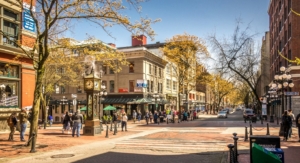
Mileage fees would promote local enterprises. (Lee Edwin Coursey, CC BY 2.0 DEED)
Section 8 establishes provisions for the Secretary to adjust mileage fees in the years following its adoption, based on inflation, equity, and efficiency.
Sections 9 and 10 address enforcement. They empower the Attorney General to bring civil actions to enforce compliance with this Act. Any person who violates the Act or makes false statements will be subject to the penalties identified in the IRS Handbook.
We designed the MFA as a stand-alone bill and a component of the larger Steady State Economy Act. The MFA will not, by itself, end harmful forms of transportation or unsustainable supply chains. But it will help shorten the distance to establishing local, equitable, and thriving economies that operate within planetary boundaries.
Daniel Wortel-London is a CASSE Policy Specialist focused on steady-state policy development.

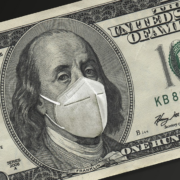
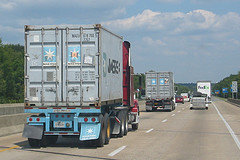
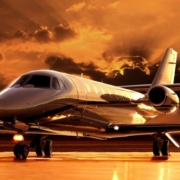

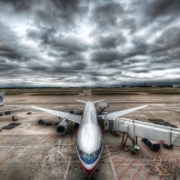



I agree with the intent. However, I disagree that it’s a one-size-fits all. I think of my home state of WV. Most are at poverty or barely middle class wages. They also drive an average of 40 minutes or more to get to work from remote places. Could you get behind a tiered tax that does not punish unfairly the working poor? That takes into account a heavy, 4-wheel drive vehicle is necessary in the mountain states of the country? That working parents add miles to their commute dropping off children to school and daycare before driving on to where they work? That alternative transit is not an option in these places? It is simply not true that the wealthy travel the most miles.
These are good points. I think an exemption for rural areas (as Mark Cramer suggests in his comment) would be a good idea.
In general I think it’s good to introduce new policies gradually or as a limited pilot. There are very often going to be side effects or unintended consequences, simply because it’s so difficult to have perfect knowledge of every individual’s situation and psychology.
So I’ll say, try a mileage fee, but if at all possible do it the way medical researchers test a potential new drug. Observe carefully the results on a small scale before committing to a larger rollout.
I disagree with this approach. I live in a rural location, I produce a lot of my own food and fuel wood. But a drive into town is 25 km each way. Many of the year around residents are not wealthy, the seasonal residents are extremely wealthy. The seasonal residents would have to pay more but this type of cost would not even bother them, these are the top 1% and beyond. But the locals who tend to have lower paid, seasonal employment would be penalized and that would really hurt.
I think we need to focus more on incentivizing smaller vehicles as the trend has been larger and larger trucks and SUVs over cars. The larger vehicles also compromise the safety of cyclists, and pedestrians.
I am also extremely concerned about the privacy implications of an act like this. That my every movement would be monitored and tracked. Instead of regulations we need to tackle these issues more systemically.
Alternative to billing our freedom to travel I expect that VOLUNTARILY sharing our reputations,, our travel carbon footprints, maybe on an app or WhatsApp footer. In this way persons local to one another can share compare and compete eith one another in their effort to reduce climate damage. The scheme may go viral with non sharers at risk of reputational harm. We care more for our reputations than a few tax dollars. Such an effort has potential to go viral and be a piece of the jigsaw of cultural shift on the way to a not for profit not for growth steady state.
On the first two comments, I think the Mileage Fee Act can be tweaked to exempt rural dwellers, since only 17.9% of the US population has a rural address. What I like about the MFA mileage factor is that it will counter the Rebound Effect (Jevons Paradox) in which human nature tells us we can consume more when we are using energy saving devices. Users of electric vehicles, for example, could imagine that they deserve to go more miles because (supposedly) they would be causing fewer emissions [which anyway is a doubtful premise, all externalities considered]. Please, no subsidy for EV users.
Finally, the DOE says that more than half of all motor vehicle trips were less than 3 miles. Some of the revenue from the MFA should used to make obscene 1-mile car trips a thing of the past, through infrastructure changes.
This requires verification which means intrusion and loss of privacy. It can easily impact low income and rural more. that would require more exemptions. then everyone will want an exemption and have to agree for big borther/sister to monitor lives and massively intrude into people’s lives.